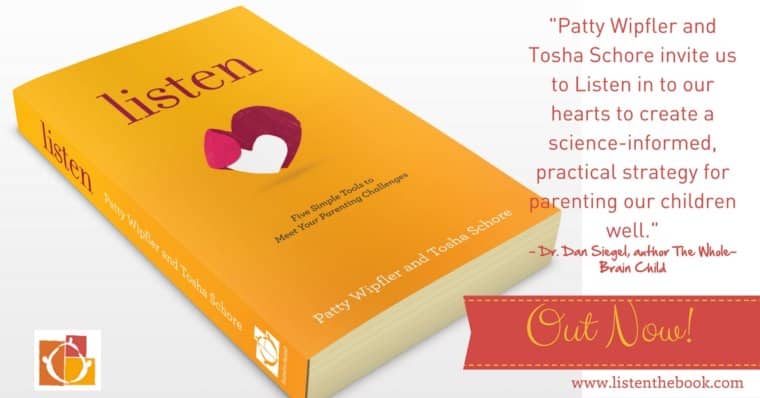I’ve noticed that many of us parents have internal habits of mind that sap our energy and make life harder. We compare ourselves with others, with friends, to the latest parenting trend, the perfect TV wife or whoever. We judge ourselves harshly, filling our minds with self-criticism, and i'm sure that lack of respect for the work of parenting in our society further engraves these habits in our consciousness.
 Here are four common thoughts that parents beat themselves up over. Draining, negative thoughts, that do nothing to celebrate the powerful job you are doing parenting. Find out how to respond to these constructively and turn our self-view, and our parenting work around. Here's how to find your peace in parenting.
Here are four common thoughts that parents beat themselves up over. Draining, negative thoughts, that do nothing to celebrate the powerful job you are doing parenting. Find out how to respond to these constructively and turn our self-view, and our parenting work around. Here's how to find your peace in parenting.
1.“If I were a good parent, I would be doing XYZ right now.”
This thought comes to us, no matter what we decide to do. If we’re washing the dishes, we think that a good parent would be playing with the kids right now. And when we’re playing with the children, we think that we should really be making those three phone calls on our “to do” list. Even when we have an hour to ourselves, but we’re too tired to think of anything we would honestly like to do, we tell ourselves that we’ve just wasted an hour that should have been used much better! Instead, we could be backing our own decisions, moment by moment or hour by hour.
In almost every family with children, there IS too much to do for one or two people. The job IS too big, too demanding. But that doesn’t mean that we’re making poor decisions over and over. It means that parents have too little support! So, in the midst of many choices, we need to back ourselves, choice by choice. “I get to wash these dishes, and enjoy the suds.” “I get to play and those phone calls will wait.” “This is my hour. Whatever the heck I do with it is my business, and if I’m staring at the walls, then that must be what I need to do.”
Once in awhile, we parents need to have a good tantrum about how much there is to do, and how hard it is to feel competent when needs seem to jump up and down in front of us everywhere we look. Finding a person who won’t be worried about us, and asking that person to just listen and care while we let go of the feelings that make us think we can’t possibly be doing a good job will help us release our grief and frustration. Then we can go back to giving ourselves permission to enjoy and explore the choices we make.
2. “Oh, no! I don’t know what to do. We’re in trouble now!”
We make hundreds of decisions a day, responding to our children and to the many situations that arise. No open-minded person would know what to do at every moment of such a complex day. Children are inventive, and when we feel like we’ve figured out what to do about a behavior that’s been puzzling, they quickly come up with another that’s bound to baffle. This is parenting. This is living life on a steep learning curve, children and parents alike.
What if we work to replace your “Oh no!” response to “I don’t know what to do!” with, “Hmm, this is interesting. I really have no idea what to do or say. I guess I’ll have a chance to learn something here.”
Not knowing what to do, or why a child is being the way they are isn’t a disaster. It’s an open door to learning. Seeing that we don’t know what to do is far better, in fact, than doing the same thing that doesn’t work over and over again. It’s progress! It’s something to celebrate. When you know that you don’t know something, you have the power to set out to learn.
You can ask for help. You can consult with other parents or trusted folks around you. You can read. You can take a week to study the baffling situation—when does it happen? What seems to trigger it? How do you feel about it? How many responses have you tried, and what happened with each? What does the situation remind you of? What are your goals here?
None of these questions can be asked, and no informative experiments can be done until you can identify what you don’t know. And rather than feeling defeated because you don’t know something, you could be proud of yourself for setting out on a path of learning.
So, next time your children baffle you, notice you’ve been stumped again, and celebrate. “Wow, now here’s something I just don’t know how to handle! And I’ve noticed. Good!”
3. “A good parent ought to be able to handle this by him/herself. What’s wrong with me, that things are so out of whack?”
Actually, parenting is complex work. It’s hard work. It’s emotionally challenging work. Would you want your surgeon to have been figuring out surgery all by herself for 8 years, rather than working closely with others in medical school and in residency? Would you want your local bridge builder to be self-taught in welding, and making design decisions by himself? Of course not! And no parent does better parenting alone than with a supportive crew of friends and family to talk with, to cooperate with, and to lean on when times are difficult.
We need to ask for help. We need set up co-operative arrangements, formal or informal, with other parents and with friends and family. “I need help here,” is not a matter for shame or a sign of failure. It’s a sign that parenting is an intensive-care effort that parents sustain over many years, and one that, by its nature, will present challenges that require the thinking and support of several caring folks, not just the one or two parents.
I think one of the things we forget as parents is that it’s so satisfying to provide support when it’s needed, and that we all take turns doing that for one another in a healthy, vibrant community. We give, and we take. No one is better off when you go it alone, shouldering a stressful time without asking for support. The healthier mindset is, “I’m almost at the end of my rope. Who could help? What can I stop doing, so I’m not so stressed?”
And the last habit of mind parents could do without:
4. “Any good parent would not have children who are doing this!”
We all worry about our children. We all often feel like it’s someone’s fault when our children’s behavior is difficult for us. Either we blame them, or we blame ourselves, or both. But in reality, growing up is a very bumpy road under the best of circumstances. Most of us don’t have easy circumstances.
Children who have the courage to show where they struggle are children who trust that their parents love them. Good parents have children who run into every difficulty in the book. Good parenting does not insure against difficulties. Our life in the Western developed countries looks tidy on the outside.
Rain is generally not leaking into our homes, and we have plumbing and hot water. But pregnancy has its difficulties, birth is not an easy process, the first several years of every child’s life is full of hard and sometimes frightening experiences, not to mention all the adjustments and challenges of learning to parent that child.
So struggles are bound to develop. We have enough work tackling those challenges, without being upset with ourselves that they exist.
This is one habit of mind that it best relieved by finding a listener. Someone needs to hear how you feel about yourself, about parenting right now, and about the child who is difficult for you. Someone needs to be there for you, to hear how it is, to reassure you that your child is good, and that your love matters, even if things have gotten so hard that you can’t even feel that love right now.
The chance to talk, to let someone know that it’s hard, and what you’re afraid of in the midst of it all, is the beginning of finding your path through a hard time. It may not show you an immediate solution, but it will help you choose your next step well. It will help you find yourself, notice what’s in your heart and mind. We can’t reach out for our children when we don’t fully know our own minds. Don’t let your listener tell you what to do. Ask whether he or she can tell how much you care, and how hard you are working. Ask for just that, and tell your whole story.
It takes some time and attention to make new paths of thought in our minds, but that work leads us out of isolation, and into a kinder outlook on ourselves. We parents are such hard-working people.
The core of love within all that hard work is solid and dependable.
That, you can count on in yourself.
From the Hand in Hand Toolbox:
Connection Boosting Games to play with kids of all ages will help bring laughter to your parenting
Learn about Hand in Hand's Listening approach for calmer, confident parenting
Need someone to talk to? Find a listening partner. Here's what that is.
